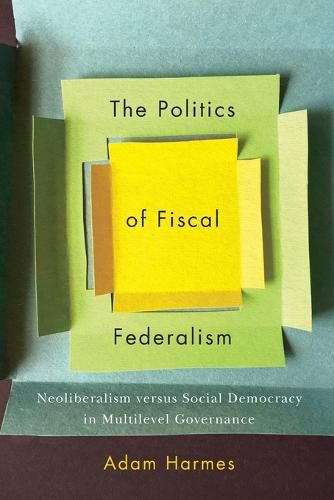Readings Newsletter
Become a Readings Member to make your shopping experience even easier.
Sign in or sign up for free!
You’re not far away from qualifying for FREE standard shipping within Australia
You’ve qualified for FREE standard shipping within Australia
The cart is loading…






This title is printed to order. This book may have been self-published. If so, we cannot guarantee the quality of the content. In the main most books will have gone through the editing process however some may not. We therefore suggest that you be aware of this before ordering this book. If in doubt check either the author or publisher’s details as we are unable to accept any returns unless they are faulty. Please contact us if you have any questions.
What does federalism have to do with the political struggle between conservatives and progressives over economic policy? How do economic theories of fiscal federalism influence European, North American, and global forms of governance? In the first comprehensive account of the left-right politics of multilevel governance across federal, regional, and global levels, Adam Harmes identifies both free-market and interventionist political projects related to fiscal federalism. Harmes argues that these political projects and the interests that promote them explain a diverse range of phenomena across national contexts, across levels of governance, and over time. This includes the left-right dynamics of US and Canadian federalism, the free-market origins of British euroscepticism and the Brexit vote, the complex politics behind the NAFTA renegotiations, and the emergence of both populist and progressive challenges to global free trade. A highly accessible outline of fiscal federalism theory, The Politics of Fiscal Federalism also expands upon the broader value and policy differences between neoliberal, classical liberal, and Keynesian welfare economics on issues such as the role of the state, subnational and global trade, economic nationalism, and monetary integration. This original and innovative work demonstrates that a political economy approach is essential to the study of federalism, and why federalism and multilevel governance is a critical area of study for political economists.
$9.00 standard shipping within Australia
FREE standard shipping within Australia for orders over $100.00
Express & International shipping calculated at checkout
This title is printed to order. This book may have been self-published. If so, we cannot guarantee the quality of the content. In the main most books will have gone through the editing process however some may not. We therefore suggest that you be aware of this before ordering this book. If in doubt check either the author or publisher’s details as we are unable to accept any returns unless they are faulty. Please contact us if you have any questions.
What does federalism have to do with the political struggle between conservatives and progressives over economic policy? How do economic theories of fiscal federalism influence European, North American, and global forms of governance? In the first comprehensive account of the left-right politics of multilevel governance across federal, regional, and global levels, Adam Harmes identifies both free-market and interventionist political projects related to fiscal federalism. Harmes argues that these political projects and the interests that promote them explain a diverse range of phenomena across national contexts, across levels of governance, and over time. This includes the left-right dynamics of US and Canadian federalism, the free-market origins of British euroscepticism and the Brexit vote, the complex politics behind the NAFTA renegotiations, and the emergence of both populist and progressive challenges to global free trade. A highly accessible outline of fiscal federalism theory, The Politics of Fiscal Federalism also expands upon the broader value and policy differences between neoliberal, classical liberal, and Keynesian welfare economics on issues such as the role of the state, subnational and global trade, economic nationalism, and monetary integration. This original and innovative work demonstrates that a political economy approach is essential to the study of federalism, and why federalism and multilevel governance is a critical area of study for political economists.